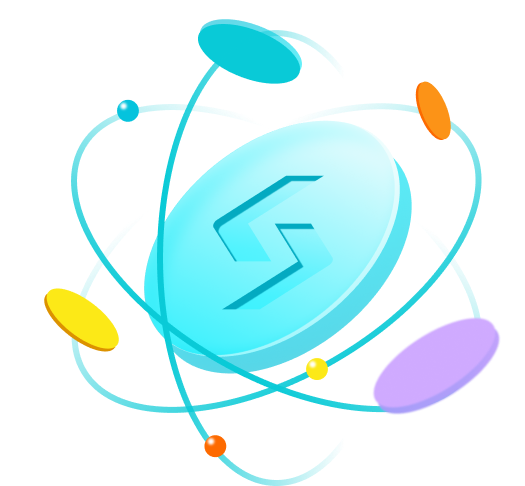Where and how to buy Polygon in Liechtenstein
Step-by-step guide
Step 1: Create a Bitget account.
Step 2: Complete Bitget's identity verification.
Step 3: Place a Polygon order through any of the various payment options provided.
 Credit/Debit in the Buy Crypto tab of the Bitget app
Credit/Debit in the Buy Crypto tab of the Bitget app Credit/Debit in the Buy Crypto tab of the Bitget website
Credit/Debit in the Buy Crypto tab of the Bitget website Add a new card to complete your payment on the Bitget app
Add a new card to complete your payment on the Bitget app Enter your bank card details to complete your payment on the Bitget website
Enter your bank card details to complete your payment on the Bitget website


Step 4:Monitor Polygon in your Bitget spot account

Alternative methods to obtain Polygon in Liechtenstein
Convert crypto to Polygon with Bitget Convert

Swap on-chain assets to Polygon with Bitget Swap
Methods to obtain Polygon for free

Buy other cryptos
Buy Polygon in a different country
Buy other cryptos in your region


How to buy Polygon in other countries?
What can you do with Polygon?

Store/Hold Polygon
Many users hold on to their Polygon with the expectation of it increasing in value. You can store your MATIC safely on your Bitget account or on our crypto wallet app BG Wallet, the most user-friendly and secure mobile wallet.

Trade Polygon
You can trade Polygon for 150+ cryptocurrencies on Bitget’s industry-leading, fast, and secure trading platform. Bitget offers many trading pairs for Polygon trading to meet your needs.

Send Polygon
Yes, Bitget allows you to easily transfer value around the world, fast. You can buy Polygon online and send to anyone and anywhere with their Polygon address.

Spend Polygon
You can also buy goods and services with your Polygon. More and more vendors and retailers accept Polygon every day.

Donate Polygon
Bitget Charity accepts Polygon donations for global projects that aim to improve the lives of people in the bottom billion. You can donate Polygon so no one misses out on the growth made possible by blockchain.

Learn More About Polygon
You can read more in-depth articles on Polygon from Bitget Research and study how cryptocurrencies like Polygon work on Bitget Academy
Market stats to assist in determining optimal times for purchasing Polygon
What Is Polygon (MATIC)?
As one of the most popular chains, Ethereum has been a prosperous ecosystem, providing different money-making opportunities like Decentralized finance (DeFi), Decentralized autonomous organizations (DAOs), Decentralized applications (Dapps), Game-Fi, Move-to-Earn (M2E), Non-fungible tokens (NFTs). Thanks to Ethereum, the use case of blockchain has been expanded tremendously. However, as more users come to Ethereum, the network faces the problem of scalability. Gas fees become expensive, and transactions get slower. A cheaper and faster solution to the problem of Ethereum is Polygon.
Polygon (previously Matic Network) is a layer 2 solution for Ethereum. As stated in their whitepaper, Polygon (MATIC) comes to solve the scalability and usability issues, while not compromising on decentralization and leveraging the existing developer community and ecosystem, and it has successfully enhanced the Ethereum ecosystem by increasing the transaction speed and lowering gas fees. It makes Ethereum become more sustainable. Using Polygon, one can create Optimistic Rollup chains, ZK Rollup chains, standalone chains, or any other kind of infrastructure required by the developers.
Polygon (MATIC)’s Founders
Jaynti Kanani: Co-founder and Chief Executive Officer. Contributor to Web3, Plasma, and WalletConnect. Previously data scientist at Housing.com.
Anurag Arjun: Co-founder and Chief Product Officer. Previously AVP (Product Management), IRIS Business. Stints at SNL Financial, Dexter Consultancy, and Cognizant Tech.
Sandeep Nailwal: Co-founder and Chief Operating Officer. Blockchain Programmer and Entrepreneur. Previously CEO of Scopeweaver, CTO of (Ecommerce) Welspun Group.
How Polygon (MATIC) Works
Currently, the Ethereum network is facing the following two challenges:
(1) Low transaction speed: Only 30 transactions available per second
(2) High gas fee: As there’s only 30 transactions available per second, if you want your transactions to process quickly, you have to pay a higher gas fee.
Polygon is a PoS (Proof-of-Stake) - based chain that acts as a Layer-2 solution for Ethereum. A Layer-2, also known as "sidechain", is a separate blockchain that inherits the security and decentralization guarantees of the Layer 1 (original chain) while extending the Layer 1. The Layer 2 processes transactions off the Layer 1 and submits them back to Layer 1 in groups for verification using rollups. This allows both users and developers to evade the two scalability problems of Layer 1 while taking advantage of its robust security.
MATIC, the native utility token of Polygon, is a major component of the network’s ecosystem, and is designed to be used for network security, paying gas fees, staking, and governance on the network. MATIC Token will be issued as ERC-20 standard-compliant digital tokens on the Ethereum blockchain.
Even though Polygon is among the most widely used blockchains just by being a Layer-2 solution for Ethereum, the team has plans to expand beyond Ethereum. Mass adoption of blockchain requires highly secure, decentralized, and immutable infrastructure, which is a challenge that Polygon hopes to address and pioneer in the future.
How Many MATIC Tokens Are in Circulation?
MATIC tokens are released on a monthly basis. MATIC currently has a circulating supply of 4,877,830,774 MATIC tokens and a max supply of 10,000,000,000 MATIC tokens.
The remaining MATIC tokens are distributed as follows:
- Team tokens: 16 percent of the total supply.
- Advisors tokens: 4 percent of the total supply.
- Network Operations tokens: 12 percent of the total supply.
- Foundation tokens: 21.86 percent of the total supply.
- Ecosystem tokens: 23.33 percent of the total supply.
According to the release schedule, all the tokens will be released by December 2022.
How to Buy Polygon (MATIC)
Consider investing in Polygon (MATIC)? It only takes 2 minutes to create an account on Bitget and start trading MATIC.
Check out the available MATIC trading pairs on Bitget!
Futures market
Spot market
Related Polygon (MATIC) Pages
Buy Polygon in Liechtenstein with Bitget
How to safely store your Polygon
- Sign up and transfer MATIC to your Bitget account.
- Alternatively, use Bitget Wallet as a self-custody solution for your MATIC.













